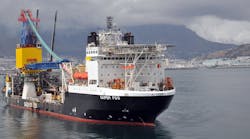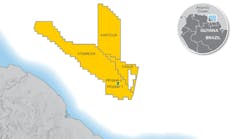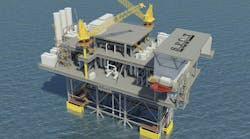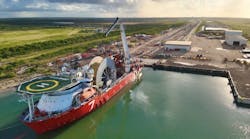Robin Dupre
HOUSTON–Global production of light naphtha, an essential steam-cracker feedstock for the production of gasoline and numerous chemicals, is increasing and could create a global surplus that exceeds market demand, making the US the world’s largest exporter of light naphtha by 2020, according to IHS. This factor, along with the need to export the excess of light crude oil, is why the current administration needs to lift the export ban, remarked Rex Tillerson, chairman and CEO, ExxonMobil, in his opening speech at IHS CERAWeek.
Tillerson also shared his thoughts on industry technology and told the audience that he felt that the US Arctic region should be opened for exploration during his third appearance at CERAWeek.
“Innovative technology in only a decade has blurred the line of conventional and unconventional, creating a new landscape in the global market,” he said. “In North America, where this new world is visibly taking shape, we are now the number one producer of natural gas in the global market. Consumers and the economy are benefiting the most.”
He added: “Natural gas emits up to 60% less carbon dioxide, which correlates to environmental gains. What we have accomplished in the past decade has opened up the potential for greater confidence and greater capability within our existing markets.
“Influential voices from the administration have agreed and have stated that hydraulic fracturing can be carried out safely and environmentally responsibly. Furthermore, US Arctic oil and natural gas can be beneficial, with most of the offshore resources being unlocked by current innovative technology. But our administration continues to struggle in ‘1970s thinking.’ We need sound energy policies. We need policies that recognize our shared aspirations of free markets.”
In December 2014, theNational Petroleum Council conducted an Arctic research study to provide the US Department of Energy with the organization’s perspective on research and technological pursuits that support prudent development in the region.
“In nearly a century of energy production in Arctic environments, ExxonMobil has learned that the technology and processes are constantly evolving and improving,” Tillerson stated. “What our experience in the Arctic has shown, and what the NPC report confirms, is that safe and responsible energy development is possible with today’s technologies, techniques, and ever-growing knowledge base. We are dedicated to meeting the modern challenge to produce the resources the world needs while being wise stewards of the environment.”
He added that as an industry, “we have to perform and demonstrate our capabilities. Often times, our regulatory environment doesn’t look at science or the facts. For example, the argument that our drinking water is being tainted by the process of hydraulic fracturing is an ongoing debate with the public and regulatory authorities. We have demonstrated that the process doesn’t taint our drinking water, yet the regulators are listening to the hype instead of demonstrating to the public that we have safely produced onshore assets. This proves that there is a miscommunication that needs to be addressed.”
Tillerson said that “the world will continue to have energy demands because the population will continue to increase. We are in a business that the world needs. So we have to deliver them in a way that the world understands and accepts.”
04/21/2015




